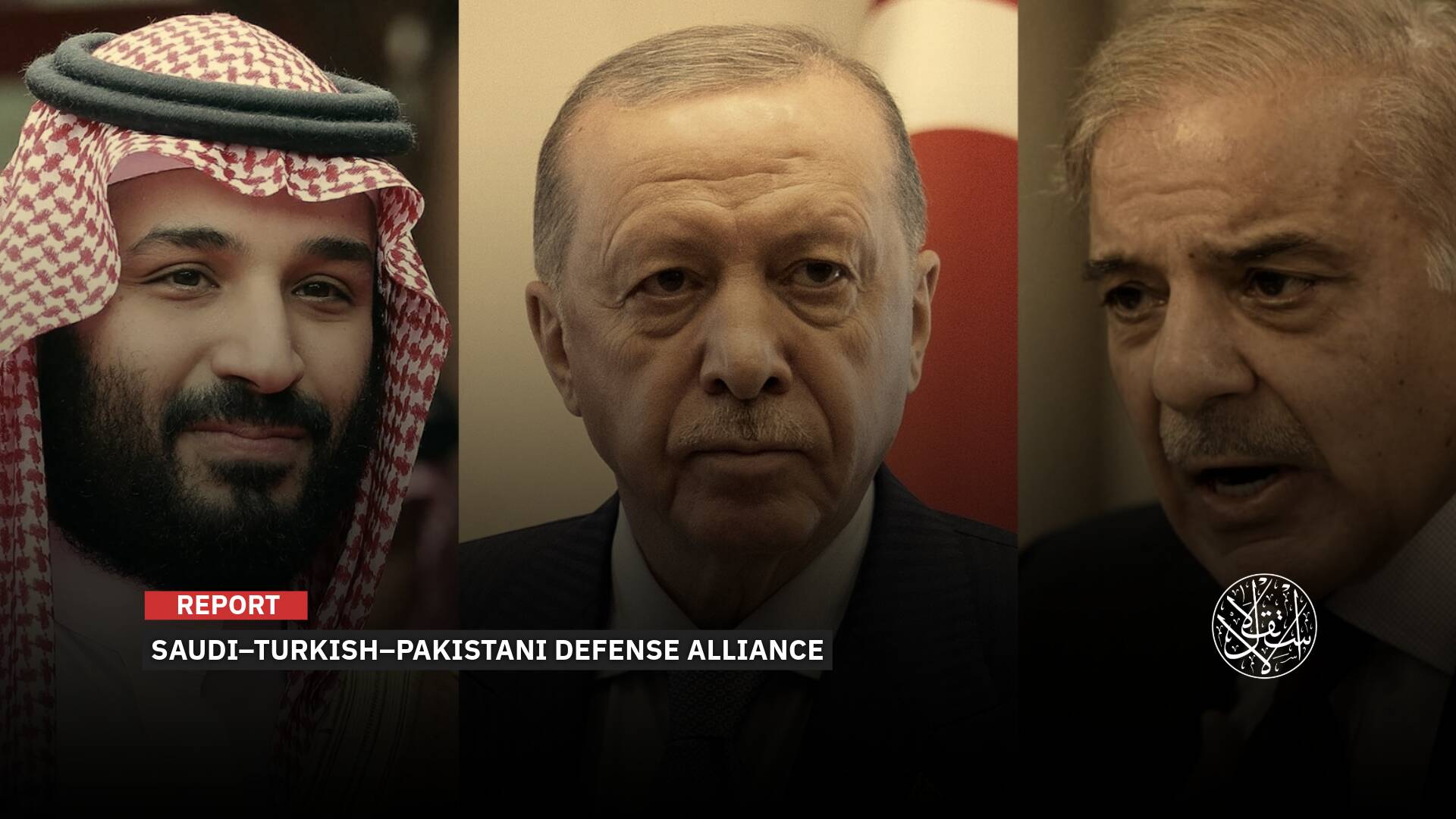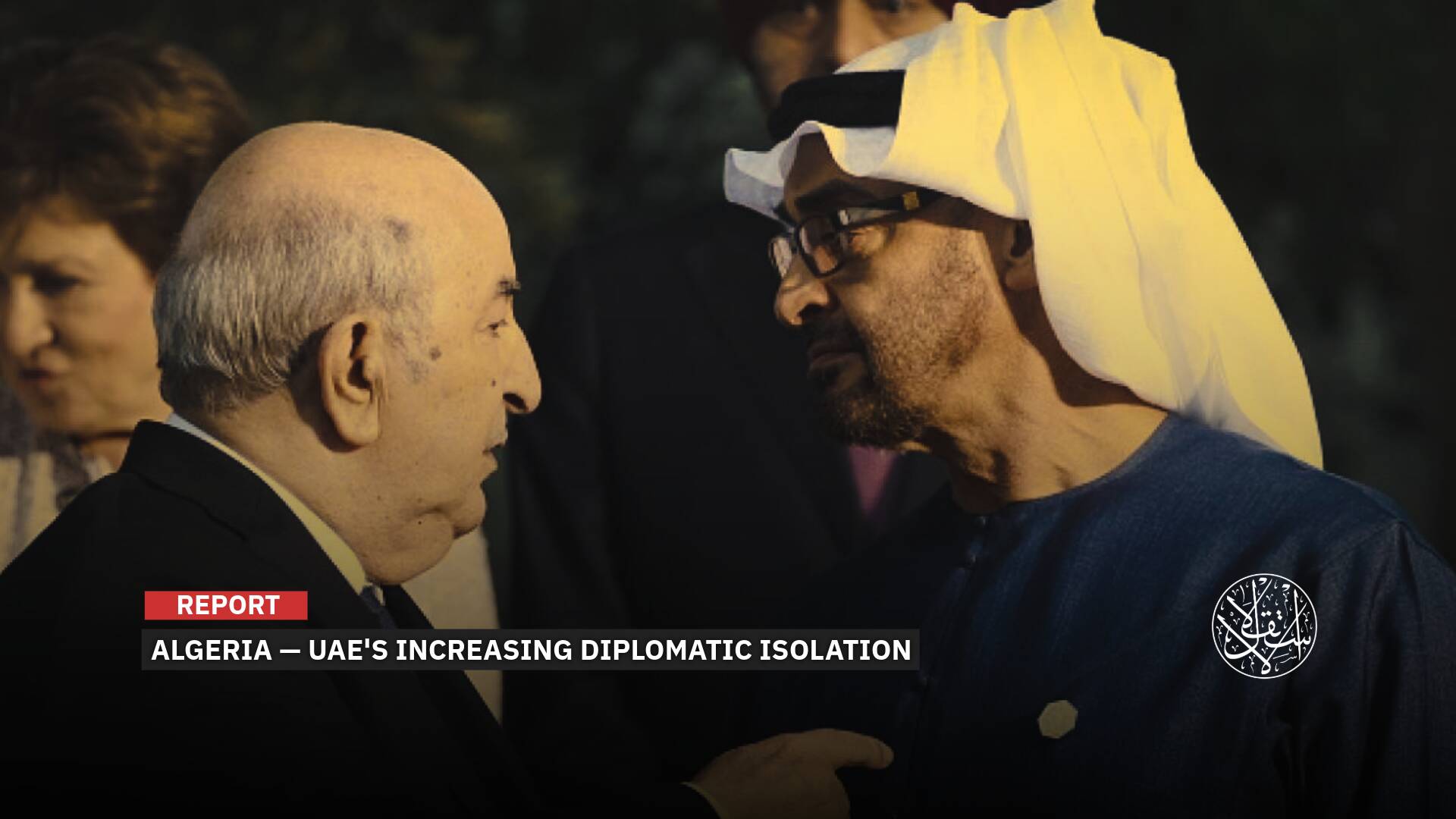How the AfD Classification Crisis Poses a Political Challenge to US-German Relations

“A recent poll showed that nearly half of Germans support banning the far-right AfD party.”
In a move unprecedented in decades, Germany's Federal Office for the Protection of the Constitution (BfV) has classified the Alternative for Germany (AfD) party as a proven right-wing extremist movement, considering its vision based on race and ethnicity to be incompatible with the country's free democratic system.
In March 2022, a German court classified the AfD as a suspected case, but indications of anti-constitutional activities have since escalated, confirming the suspicion of extremism, according to the BfV.
The strict security classification comes just weeks after the party secured second place in the federal elections with 20.8% of the vote, securing 152 seats in the 630-seat German parliament, making it the second-strongest political force in the country.
In its initial reaction to this classification, the AfD leadership considered the decision purely politically motivated, describing it as an extension of the smear and criminalization campaigns ahead of the government change.
The AfD is expected to appeal the decision in an attempt to avoid a dissolution scenario. Modern Germany has only banned two political parties since the 1950s due to their extremist nature.
Meanwhile, some German political actors have already begun to mobilize sufficient legal support to ban the party, amid a heated national debate about the limits of freedom of expression and the foundations of democracy.
Far-Right Movement
On May 2, the German Interior Ministry announced the classification of the AfD party as a far-right movement, citing its racist positions against foreigners, minorities, Islam, and Muslims.
Acting Interior Minister Nancy Faeser said in a statement that “the AfD represents an ethnic concept that discriminates against entire population groups and treats citizens with an immigrant background as second-class Germans.”
She emphasized that the decision was made without any political interference and was based solely on disturbing facts about the party's positions on immigrants and democracy.
German media reported that the domestic intelligence agency stated that the party's classification as a right-wing extremist movement is based on a report prepared over several years, which concluded that the party poses a threat to the free democratic order.
The decision gives authorities the right to monitor and track the party, plant informants within it, and wiretap phone calls.
On his part, new Chancellor Friedrich Merz recently stated that his government, and especially Alexander Dobrindt, whom he has chosen to head the Interior Ministry, will have to carefully evaluate the domestic intelligence agency's report before taking any further action.
Andrea Lindholz, Vice President of the German Parliament, considered the classification to require a review of the AfD's privileges within the Parliament, including the chairmanship of some committees, noting that treating it like any other party is no longer acceptable.
Germany's domestic intelligence services had classified the AfD as a far-right group in three eastern states, after a long period of strict monitoring.
In May 2024, the Higher Administrative Court in Muenster ruled in a second-degree appeal that the office's classification of the AfD as a suspected right-wing extremist organization was justified. The legal dispute is still ongoing.

German Democracy
In response, the AfD party announced that it had filed a lawsuit against the BfV in the relevant administrative court in Cologne.
AfD leaders Alice Weidel and Tino Chrupalla described the classification as politically motivated and a severe blow to German democracy.
They asserted that the party was being subjected to systematic distortion and criminalization ahead of the government change.
Wiedel had previously rejected the designation of her party as a far-right party, preferring to describe it as a conservative-libertarian party.
The repercussions of the decision and the controversy surrounding it appear to have extended beyond Germany itself.
US Secretary of State Marco Rubio said on his Twitter account: “Germany just gave its spy agency new powers to surveil the opposition. That’s not democracy—it’s tyranny in disguise.”
However, the criticism of the Donald Trump administration did not stop there. US Vice President J.D. Vance continued his attacks on the old ally, accusing it of rebuilding the Berlin Wall.
In the same context, American billionaire Elon Musk considered banning the AfD party, which he described as the most popular party in Germany, to be an attack on democracy and freedom of expression.
In an unusual move, the German Foreign Ministry responded directly to Rubio's statement via the X platform, saying, “This is democracy.”
It emphasized that the decision was the result of an independent investigation to protect the constitution and noted that confronting right-wing extremism is a historical German duty.
In turn, Merz said he intends to urge the US government to keep German domestic politics an internal affair and to largely distance itself from these factional political considerations.

Political Tension
Many political circles believe that the designation of the AfD as a far-right party should be followed by a more daring step: initiating proceedings to ban it, based on the 1949 German Constitution, which stipulates that any party that undermines the free democratic order can be banned.
According to the law, a ban can only be issued by the Constitutional Court, at the request of the Parliament or the government, and not by the intelligence service alone.
Although a number of politicians welcomed the BfV’s report, this requires a majority, which may not be available. Furthermore, fears of political tension prevented the matter from reaching the stage of a ban.
Serpil Medyatli, deputy leader of the Social Democratic Party (SPD), said, “It is clear to me that a ban is inevitable.”
Heidi Reichinnek, a member of parliament for the Left Party, called for the same decision, emphasizing that a far-right party that has been proven to be fighting democracy from within and seeking to undermine it cannot be accepted.
Daniel Gunther, Prime Minister of Schleswig-Holstein and a leader in the Christian Democratic Party (CDU), called on the new government to initiate banning procedures, considering the AfD a real threat to societal cohesion.
“The Constitutional Court has rejected all ban requests in recent years, so I am against rushing to do so. I wouldn't say we should do it immediately,” outgoing Chancellor Olaf Scholz said.
Ralf Stegner, a SPD member of parliament, also supported the ban, but also warned against rushing into it.
Polls conducted by the INSA Institute showed that about 48% of Germans support banning the party, compared to 37% who oppose it, while 15% are neutral.
Regarding the impact of a potential ban, 39% believe it would be harmful to democracy, while 35% believe it could strengthen it.
In turn, European affairs researcher Hussein Radwan told Al-Estiklal that the AfD party is the second-strongest political force in parliament, and polls give it similar popularity to the CDU, which will govern the country in the coming years.
“If the party’s banning is successful and actually happens, it will create a crisis in the political system and could lead to increased popularity for the far-right party,” he added.

Controversial Party
Founded in 2013, the AfD’s popularity has fluctuated but has surged in recent years amid growing concerns about immigration, while Europe’s largest economy struggles with recession.
Based on a rhetoric of extremism versus extremism, the AfD began making political strides, guiding it into the German parliament in 2017, becoming the first right-wing nationalist party to enter the Parliament since the end of World War II.
Furthermore, the party adopts a hostile rhetoric toward Islam, considering it an incompatible religion with the democratic principles of the German constitution.
The party subsequently faced controversy, with several of its leaders accused of using banned Nazi slogans and downplaying Nazi atrocities.
Reports have indicated the far-right party's close ties to Russia. Earlier this week, a former aide to an AfD MEP was also charged with spying for China.
Despite the controversy and scandals surrounding the party, the AfD made significant gains in the recent European elections, achieving its best-ever showing with 15 seats.
This rise is likely to be repeated in the upcoming elections, despite strong criticism from the European Union.
In the February legislative elections, the party came in second place with over 20% of the vote, behind the center-right Merz (CDU/CSU) alliance.

The AfD party's positions also enjoy clear external support, particularly from the Donald Trump administration.
Vance met with Weidel in Munich ahead of the February election, emphasizing the rejection of firewalls and the importance of freedom of expression in Europe.
Meanwhile, Musk publicly called on Germans to vote for the party in elections, a move that demonstrates the extent of the AfD's transnational political support.
He has stated that only the AfD can save Germany, appeared via video link at one of his rallies, and interviewed Weidel on his X platform.
All parties in Germany currently rule out cooperation with the AfD as part of the country’s political firewall — the post-World War II agreement by mainstream parties to block the far right from being part of any government.









